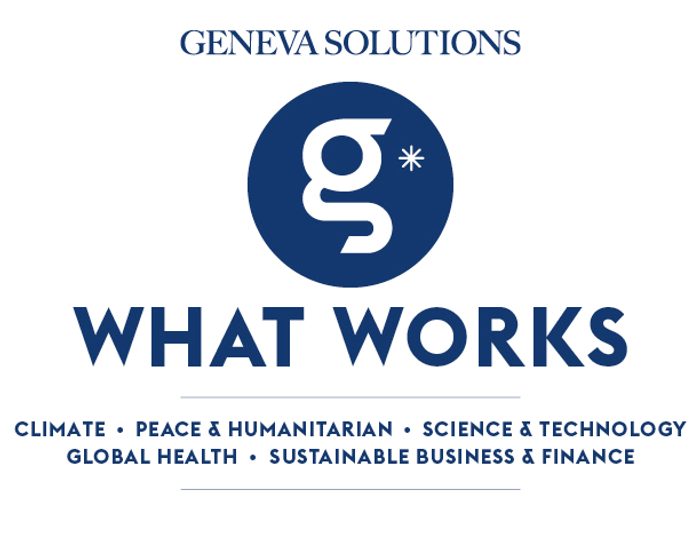Good morning, this is Kasmira. In danger of losing everything to climate change, Indigenous leaders at the Cop29 in Baku say their contributions are often minimised when it comes to finding financial solutions to the crisis. They want a seat at the table.
And as the world awaits to see what step the US president-elect will propose for ending the Ukraine war, will Trump's unpredictability act as a deterrent or a risk? |

|

Ibrahima Cheik Diong, executive director of the Fund for Responding to Loss and Damage (centre), and Tunga Rai, a Nepalese indigenous leader (right) at Cop29 in Baku, 20 November 2024. (Geneva Solutions/Paula Dupraz-Dobias)
|
|
A United Nations loss and damage fund expected to begin disbursing funds in 2025 vows to be fair and inclusive. For Indigenous peoples, among the worst hit by the climate crisis while contributing the most to protecting the environment, having representation in the new mechanism can ensure that much needed funding gets to them.
“The village has died,” Tunga Rai, an Indigenous leader from the Rai community in Nepal, said, describing one of the group’s communities in the Himalayas. As glaciers disappeared due to climate change and water sources dried up, inhabitants were forced to leave. “But the memories and recollections from their ancestral land keep following them,” Rai said listing what are termed in Baku as non-economic losses. “They could not relocate their food, monasteries, cultural entities, traditional homes and memories of their parents, grandparents and ancestors.”
While indigenous populations constitute only 6.2 per cent of the global population, not only are they among those contributing the least to the climate emergency, they are estimated to be responsible for safeguarding and managing 80 per cent of the world’s biodiversity and rainforests that sequester billions of tonnes of carbon annually. Yet funding to them has been limited.
Read the full story on Geneva Solutions
|
|
|
Here's what else is happening
|
|

Traditional Russian wooden dolls depicting US President-elect Donald Trump and Russian President Vladimir Putin, on display at a gift shop in Moscow, Russia, 6 November 2024. (Keystone/EPA/YURI Kochetkov)
|
|
|
GS news is a new media project covering the world of international cooperation and development. Don’t hesitate to forward our newsletter!
Have a good day!
|

|
|
Avenue du Bouchet 2
1209 Genève
Suisse
|
|
|
|









